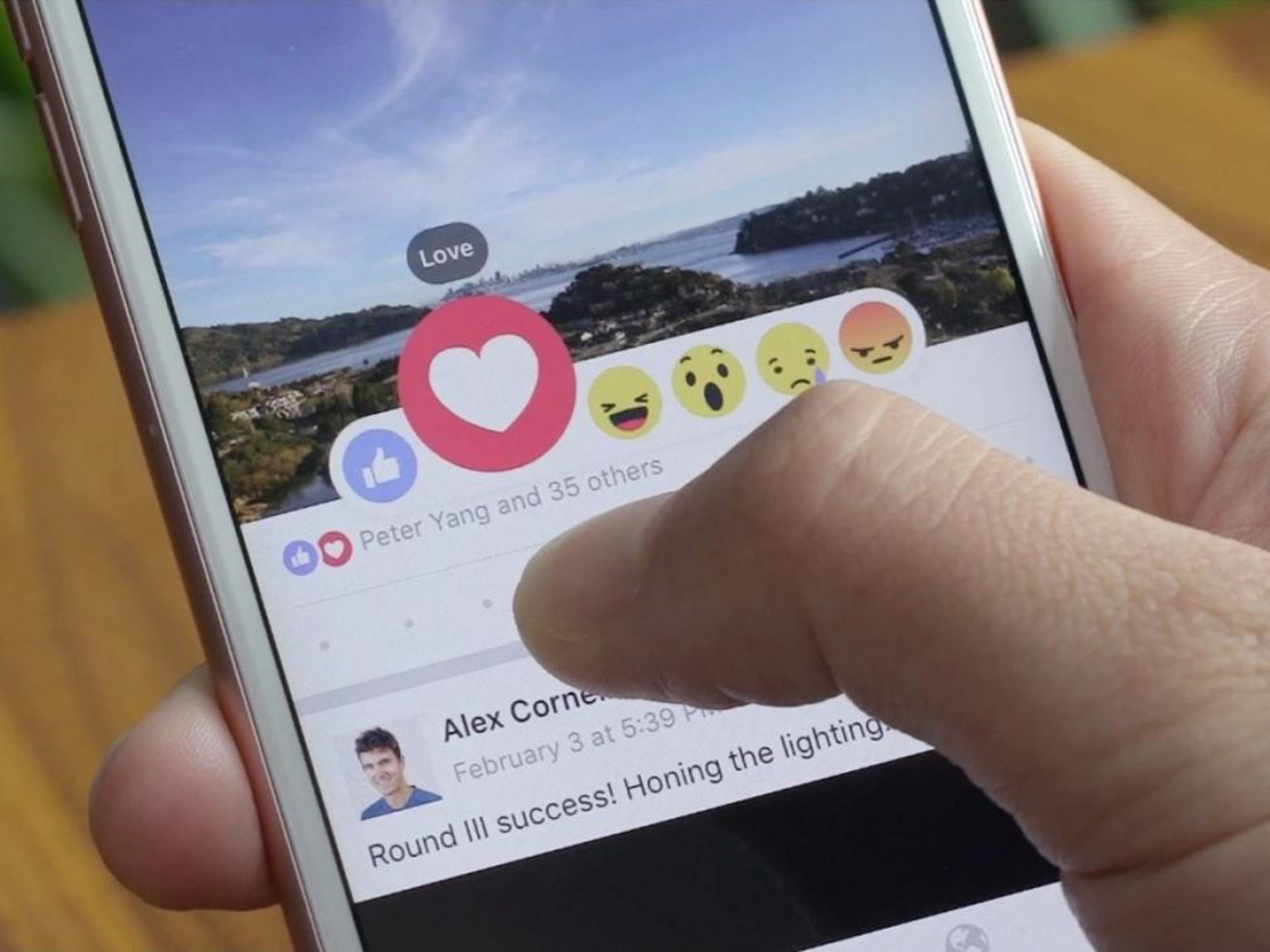Facebook emoji Reactions now available on comments
As the social network has just added the functionality, not everyone will be able to use it quite yet

Your support helps us to tell the story
From reproductive rights to climate change to Big Tech, The Independent is on the ground when the story is developing. Whether it's investigating the financials of Elon Musk's pro-Trump PAC or producing our latest documentary, 'The A Word', which shines a light on the American women fighting for reproductive rights, we know how important it is to parse out the facts from the messaging.
At such a critical moment in US history, we need reporters on the ground. Your donation allows us to keep sending journalists to speak to both sides of the story.
The Independent is trusted by Americans across the entire political spectrum. And unlike many other quality news outlets, we choose not to lock Americans out of our reporting and analysis with paywalls. We believe quality journalism should be available to everyone, paid for by those who can afford it.
Your support makes all the difference.Facebook users can now react to comments with emoji.
The feature allows members of the site to react quickly to discussions under user’ posts and status updates with the Like graphic or a number of expressions Facebook calls ‘Love’, ‘Haha’, ‘Wow’, ‘Sad’ and ‘Angry’.
To reply to a comment with one of the emoji, all users need to do is hover over the Like button directly below the comment and wait for the faces to appear.
The update is predominantly targeted at the site’s younger users, though it can help everyone save a bit of time and potential embarrassment.
Previously, users could either Like a comment or reply to it with text or an image. Typing while on the move can be a pain, and Liking a sad post can seem insensitive.
The Reaction emoji are handy for putting across the right message, whether that's happy or sad, with a quick tap.
“We’ve heard from people they’d like more ways to show their reaction in conversations on Facebook, so we’re rolling out the ability to react to comments,” the company said.
However, as the social network has just introduced the functionality, not everyone will be able to use it quite yet.
Facebook first introduced its Reactions emoji a year ago, but back then, users could only use them on posts and updates, not comments.
They’ve since landed on Messenger too, where they work in the exact same manner.
A recent study found that receiving Likes on social media posts doesn't make people feel better about themselves or improve their mood if they are down.
It found that people who go out of their way to get more Likes are more likely to have lower self-esteem and trust people less.
Join our commenting forum
Join thought-provoking conversations, follow other Independent readers and see their replies
Comments